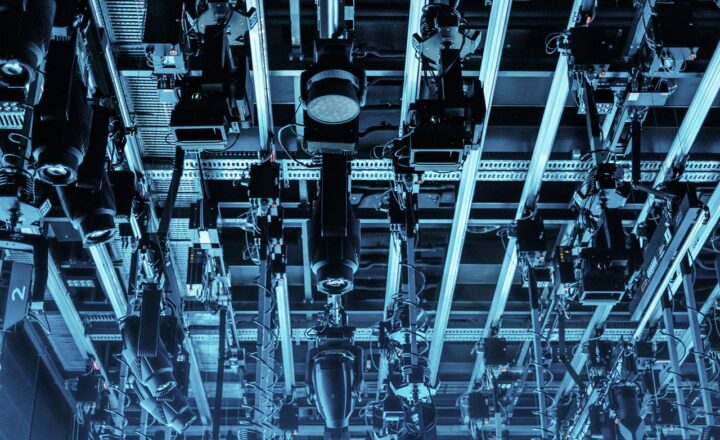Weapons of the Future: A Dive into Tech’s Impact on Modern Warfare
November 18, 2024

In an era where technology evolves at a breathtaking pace, the battlefield of the future is being reshaped by advanced weaponry and sophisticated tech innovations. As nations strive for supremacy, we see an unprecedented intersection of warfare and cutting-edge technology, leading us into a new age of combat. This article explores the transformative impact that technology is having on modern warfare, including the emergence of artificial intelligence, robotics, autonomous systems, and cyber warfare.
1. The Evolution of Warfare with Technology
Throughout history, warfare has been influenced by technological advancements—from the invention of the bow and arrow to the development of firearms. Today, we stand on the brink of a new technological revolution in military strategy that includes:
- Increased Precision: Precision-guided munitions (PGMs) have reduced collateral damage and increased the effectiveness of strikes, enabling military planners to execute operations with greater accuracy than ever before.
- Speed of Response: Technology enables rapid mobilization and response times, allowing military forces to engage more quickly and decisively.
- Information Warfare: The rise of information technology has changed the nature of conflict, as control over information can enhance strategic advantages and mislead adversaries.
The integration of advanced technologies in warfare sets the stage for unprecedented methods of conflict that are being refined and utilized in real-time.
2. Artificial Intelligence (AI) and Machine Learning: The New Battlefield Allies
Artificial intelligence (AI) and machine learning are at the forefront of military technology innovation. These advancements empower militaries to:
- Analyze Complex Data; AI systems can process vast amounts of data from various sources, such as satellite imagery and battlefield reports, to provide actionable insights that shape military strategies.
- Enhance Target Recognition; AI-enhanced targeting systems can quickly identify enemy assets in complex environments, improving the speed and accuracy of strike decisions.
- Autonomous Decision-Making: AI can facilitate autonomous systems capable of executing missions with minimal human intervention, challenging traditional command-and-control structures on the battlefield.
While AI technology brings numerous advantages, it also raises ethical considerations that will shape the future of military engagement.
3. Robotics and Unmanned Systems: Changing the Face of Combat
Robotic technologies continue to redefine the way wars are fought. The integration of robots and unmanned systems into military operations offers several benefits:
- Reduced Risks to Personnel: Unmanned aerial vehicles (UAVs) and ground robots can conduct missions in hazardous environments, protecting human soldiers from direct risk.
- Versatility in Roles: Robots can be configured for various tasks—reconnaissance, logistics, surveillance, or even direct combat—making them invaluable in diverse military scenarios.
- Enhancing Operational Efficiency: The use of drones for logistics, surveillance, and air support can streamline operations, leading to more efficient use of resources and tactical advantages.
As countries race to develop and integrate these systems, the military landscape becomes an increasingly automated and technologically driven environment.
4. Cyber Warfare: The Invisible Front Line
In the 21st century, cyberspace has become a critical arena for warfare. Cyber warfare involves:
- Disruption of Enemy Operations: Nations are increasingly engaging in cyber-attacks aimed at disrupting or crippling an adversary’s critical infrastructure, communication networks, and military operations.
- Espionage and Intelligence Gathering: Conducting cyber-espionage allows nations to steal sensitive information that can provide strategic advantages in military engagements.
- Propaganda and Psychological Operations: Cyber capabilities enable the spread of misinformation to alter perceptions and influence public opinions during conflicts.
Engaging in cyber warfare poses unique challenges as it often unfolds in the shadows, making attribution and response complex yet critical for national security.
5. The Ethical Dilemma of Future Weapons
The advancements in military technology raise profound ethical questions that challenge traditional notions of warfare:
- Responsibility and Accountability: When AI and autonomous systems make life-or-death decisions, questions arise regarding who is accountable for their actions in war.
- Impact on Civilian Life: Precision weaponry is designed to minimize collateral damage, yet the deployment of such technology still poses risks to civilians in conflict zones.
- Moral Considerations of Autonomous Weapons: The potential for machines to determine targets and carry out attacks raises critical moral questions regarding the role of humans in warfare.
The discourse surrounding ethical standards in military applications is an ongoing conversation that evolves alongside the technology itself.
6. Conclusion: Adapting to a Technologically Driven Future
As we move deeper into the 21st century, technology continues to revolutionize modern warfare. The incorporation of advanced systems and methodologies into military operations demonstrates a shift towards a more strategic, data-driven approach. However, as this transformation unfolds, it is essential for nations to consider the implications of these advancements on international stability, ethics, and the nature of conflict.
With military engagements becoming increasingly reliant on technology, a comprehensive understanding of future warfare’s complexities will be fundamental for leaders, strategists, and policymakers aiming to navigate this evolving landscape. The weapons of the future are not just tools of war; they carry with them the weight of responsibility and the challenge of ensuring a secure, balanced, and ethical approach to global conflicts.








